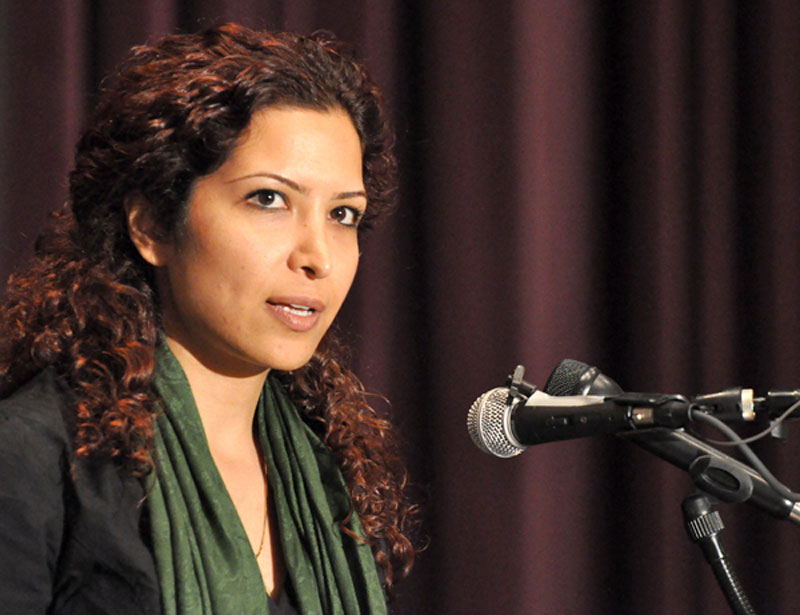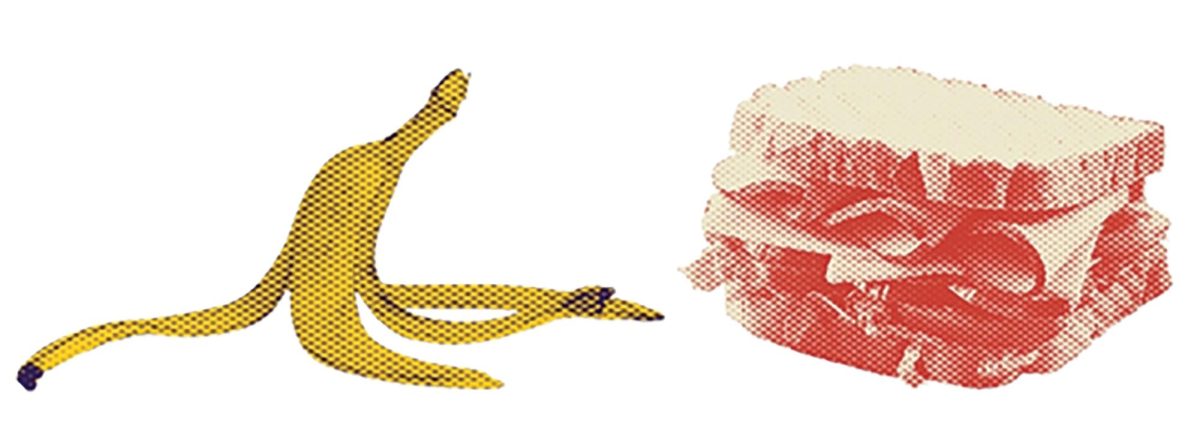
Mass communications graduate student Esha Momeni, formerly imprisoned in Iran, revealed she is planning an exhibition about her time in prison, while speaking at an event in her honor at CSUN.
The event, From CSUN to Iran and Back Again, which was held at the University Student Union’s Northridge Center on Monday evening, gave Momeni an opportunity to recount her story and share her future plans.
“The project that I’m working on is about the prison,” Momeni said. “What we did is, when I was released, because I had to express myself, I recreated the cell outside the prison. So we built the cell. So we are going to have an exhibition.”
Momeni said her equipment had been confiscated when she was arrested and her thesis project about the women’s rights movement in Iran consequently changed focus. She added she hopes to have her grad work completed by February.
“We did self-portrait shots of me in prison,” Momeni said in an interview after the event. “Some of them are real and some are surreal — so it’s about my imagination. So my thesis will be related to that.”
Momeni said she is still looking for a gallery to hold her exhibition. She would like to hold it at CSUN, but the earliest time available is summer.
At the event, Momeni shared information on her time in prison, which she said is what most people want to know about.
“Prison was one page of the hardships,” Momeni said. “Perhaps the most challenging, but not the only one.”
She was blindfolded as she was taken through Evin Prison, she said, and later recounted how the lump in her throat, which had been there for many years, broke into a scream.
“Look what you’ve done to us,” she said. “You killed my teenage dreams. And now when I am trying to do something for me, for us — hoping to make it better, you put me behind bars.”
Of the time she was allowed outside the prison, she recalled a time when she looked up at the gray sky and dreamt about freedom and suddenly felt a raindrop hit her forehead. She smiled and sang.
Momeni said she made friends in prison and it was those prisoners who told her of her release since they had seen others getting released before. She said she was not able to share her happiness with them because “my freedom adds to their disappointment.”
“I could not look at their eyes. I am ashamed — it’s like leaving your squad behind in the middle of the war – it’s like betraying them.”
When Momeni was finally released and learned of the support she had received, she said she felt even guiltier.
“For the first time I could feel the way Iranian men, who fight for women’s right, feel,” she said. “The uncomfortable feeling of being privileged by circumstance. Being an American in the world is like being a man in Iran – it’s an unjust privilege.”
Dr. Melissa Wall, a journalism professor who presented Momeni at the event, said Momeni was a special person that inspired those around her and that is why she had been asked to speak by Amnesty International about her work.
“Being able to inspire others is not ordinary, it’s extraordinary,” Wall said.
Wall added she is always reminded of President Barack Obama when she sees Momeni because “we were going through this horrible situation when the euphoria of electing Obama was happening.”
Momeni being inspirational is why many recognize her work in women’s rights at a young age, Wall said.
“Esha inspired us and gave us the opportunity to work for something besides ourselves,” Wall said. “It doesn’t matter if that is not what she set out to do. In the end she did it.”
In the beginning, Momeni thanked the CSUN community along with professors Wall, Dr. Nayereh Tohidi of the Women and Gender Studies department and David Blumenkrantz of the Journalism department, who sat on her thesis committee and supported her throughout.
Tohidi, who also spoke at the event, said many believe Iranian women to be “submissive poor creatures” but they are not. She added Momeni was an example of that.
“I’m really happy,” Tohidi said. “This is one of the moments I’ve been wishing for since she was imprisoned.”
Momeni said she hoped those present would become aware that the change made in the United States will eventually be seen around the world and be emulated. To create change she encouraged young adults to vote and become politically involved.
Shira Brown, director of the Women’s Resource and Research Center, said she hoped those attending left with a different perspective of Iranian women.
Junior Sheila Boateng, 21, a communication studies major, said the event and Momeni had helped open her eyes about women and the role they play in Iranian society.
“She changed my perception of Iranian women,” Boateng said. “I thought Iranian women were not active, they were submissive and subjugated.”





